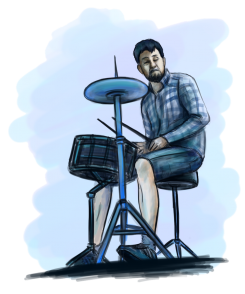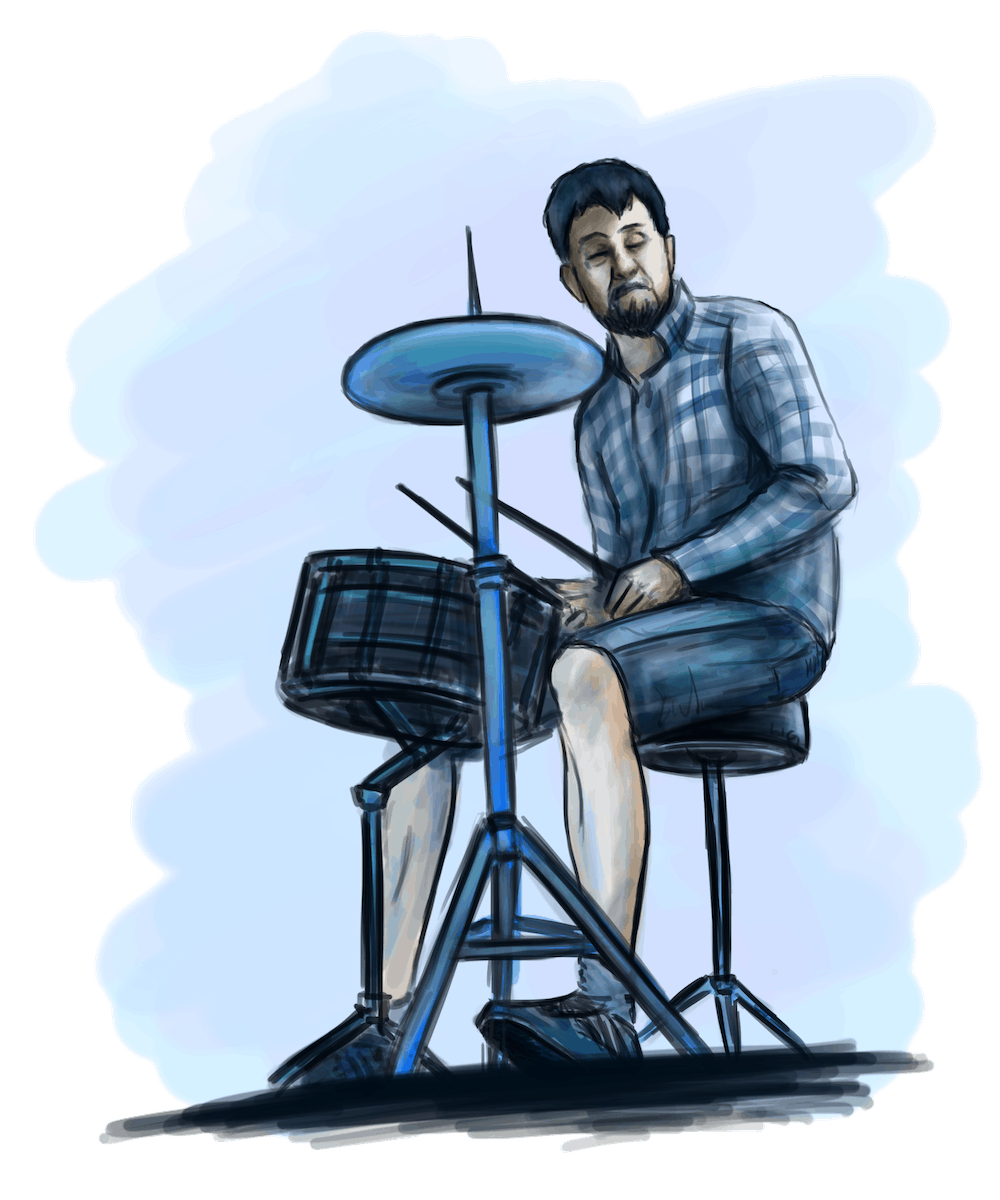When it comes to touring, Japandroids are a bit like two kids in a candy store: they get a little sick from indulging in a few too many treats, but heck, that won’t stop them from doing it again.
The band’s enthusiasm for playing shows on the road comes through when drummer and co-vocalist David Prowse describes Japandroids’ tour for the band’s latest album, Celebration Rock. “Playing a show in front of a large audience who are really into your music is the best feeling I’ve ever experienced in my life, and I get to do that on a very regular basis,” he says. “I mean, that’s the reason we tour so much, because obviously it’s something we have kind of become addicted to.”
 But the extensive touring Prowse and guitarist/co-vocalist Brian King have been doing also takes its toll. “When you’re playing five to six shows a week, the adrenaline that runs high on a tour compensates for your lack of sleep most of the time,” Prowse explains. “As the tour goes on, it becomes a bit more stressful because you just want to make sure you give people as good a show two months in as you did the first week.”
But the extensive touring Prowse and guitarist/co-vocalist Brian King have been doing also takes its toll. “When you’re playing five to six shows a week, the adrenaline that runs high on a tour compensates for your lack of sleep most of the time,” Prowse explains. “As the tour goes on, it becomes a bit more stressful because you just want to make sure you give people as good a show two months in as you did the first week.”
Prowse and King have spent most of the last few months touring, and are now gearing up to leave for their Pacific Rim tour in a few days; after a brief interlude at home in Vancouver, the next nine months or so will be spent on the road again.
Playing shows is what has driven the Vancouver duo’s signature style on their past two albums, which are defined by hooky, energetic rock songs that revel in their directness and come without pretention. After Japandroids’ debut album Post-Nothing unexpectedly garnered international buzz in 2009, the band — who at that point had decided to call it quits due to lack of interest and support in their hometown — reassembled, toured extensively, and then laboured over the traditionally dreaded sophomore album for much longer than planned. Expectations for the follow-up to their promising debut were high, and there was a lot of pressure to excel, perhaps most intensely from the duo itself.
“Recording this album was not very fun,” Prowse admitted. “Post-Nothing was made before anyone had really ever heard of our band. There was some stress [with our first album] because recording was pretty unfamiliar territory for us, but nothing compared to Celebration Rock. With this album we’re trying to prove that the first round wasn’t a fluke.”
And prove that they did. When the album finally dropped in Canada last May, and worldwide in June, it was clear that Japandroids had exceeded expectations. Pitchfork gave the album a “Best New Music” tag, Celebration Rock made various year-end lists, and Spin crowned Japandroids the band of 2012.
On paper, the band’s sophomore album is not much different from Post-Nothing. As with their debut, Japandroids recorded Celebration Rock at the Hive in Vancouver with sound engineer Jesse Gander, and put exactly eight songs on the finished record. The band made a conscious decision to keep their sophomore album similar to Post-Nothing, with, according to Prowse, “maybe some more energy and feeling.”
While Celebration Rock doesn’t stray far from its predecessor, there’s a notable shift in the album’s lyrics and vocals. When Japandroids started out, their lyrics were an afterthought to their instrumental conceptions, and neither band member considered himself a good singer. Consequently, lyrics are sparse on Post-Nothing, with songs like “Crazy/Forever” consisting of just three lines, and the vocals are muddled up in distortion. On Celebration Rock however, greater confidence and improved skill have made for a clearer vocal sound. According to Prowse, “there is much more storytelling and much more being said on this record.”
Beyond pushing themselves to tackle areas that they felt could be improved and wanting to “make something great,” Japandroids laboured over Celebration Rock for such a long time because that is simply how they work. “It takes us a lot longer to come up with something we feel really strongly about,” Prowse says. “We had a lot of ideas, but to get them to a fully fleshed out song was a very long process. We had to really grind away and keep chipping at songs.”
It probably didn’t help that both Prowse and King don’t like recording. Prowse describes the recording studio as a “sterile, static environment,” basically the polar opposite of the raw, energetic atmosphere that their live shows are known for.
This sentiment reveals a general attitude that echoes throughout Japandroids’ lyrics and work: what the band strives for is to create something communal. When Prowse and King shout in unison on “Heart Sweats” or “The House That Heaven Built,” the sing-a-long quality of their songs is hard to resist. The band’s love of playing live and the self-inflicted pressure to put out something worthwhile speaks to a desire to create or sustain a sense of belonging, to foster togetherness. As Prowse explains, “I don’t think either of us feels like we were born to do this, but we love music so much that we’re willing to put the time in to try to make something that we think is worth putting out into the world.”
Listening to Prowse describe Japandroids’ motivation and dedication, it becomes clear that the band is trying to create something greater than their egos. Yet the future of the band is not entirely certain. The bandmates are so busy with their touring schedule that they have yet to discuss their next step, but Prowse says, “I don’t think it’s crazy to say that we won’t release another album. That’s a possibility. We have a pretty short-term outlook on the band and I think that comes from the fact that we did pretty much break up before we did Post-Nothing.”
When it comes down to it, the band will only release another album if they feel like they can make something better than Celebration Rock — if they feel that what they have left up their sleeves is a worthy contribution to the world of music. Japandroids is serious about what they do, and that is exactly why they might not do it without end. “The way this band operates, it dictates our lives,” Prowse says. “Everything we do is built around this band because we’re so invested in it, emotionally and in terms of how much time we put into it. It’s all-consuming. I don’t know if that’s sustainable forever.”


